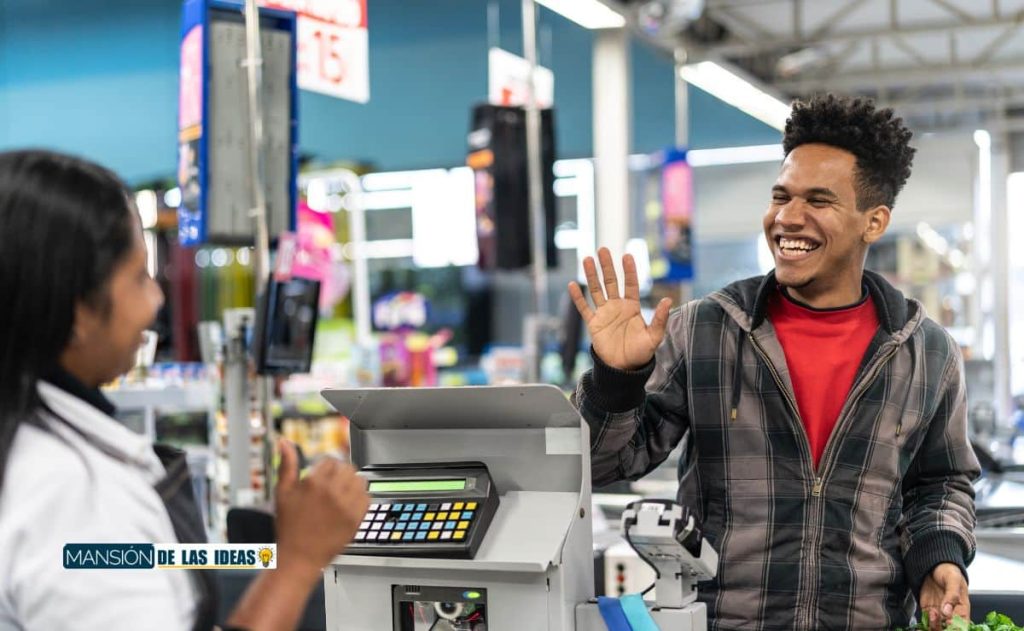Self-checkout technology has revolutionized the retail industry, offering customers a quicker and more convenient way to pay for their purchases. However, this convenience has also led to a rise in theft, with some shoppers taking advantage of the self-checkout system to avoid paying for all of their items. And one of the most popular ways people steal from supermarkets and stores is the notorious “banana trick”.
But, what is the “Banana Trick”? Well, it involves shoppers scanning a cheaper item, such as a banana (hence the name), and placing more expensive items in the bag without scanning them. This allows the shopper to pay less for their groceries. That’s, in plain words, stealing, and it’s a crime. This form of theft costs retailers millions of dollars each year. With the rise of self-checkout technology, the “banana trick” has become increasingly popular, with some shoppers even sharing their tips and tricks online.
The “Banana Trick” Has Evolved and Supermarkets Are Having a Hard Time Detecting It
Retailers are taking action to combat self-checkout theft, with some investing in technology that can detect when items are not scanned or have been “mis-scanned”. However, this technology comes at a cost, and retailers are still losing millions to self-checkout theft each year.
The self-checkout machines are having difficulties to detect and stop costumers using the “banana trick” with other products.As we said before, users publicly admit on social media such as Instagram or TikTok to shamelessly use the “banana trick” to steal from supermarkets. Only now, they do it not only with bananas but also with other fresh products, such as carrots.
Charley Bourne on TikTok revealed that she scans carrots at self-checkout kiosks, but she was actually carrying a bunch of apples in her shopping basket. Just like that, she doesn’t even see to feel sorry.
In the viral video, she lip syncs to a popular sound from Dr. Phil where you can hear a voice saying: “That’s what I always do, and they never catch me. Ain’t nobody gonna catch me.”
To which Dr. Phil replies: “’Cause you’re too street wise?” And the person replies: “Yep.”
Some other popular tricks at the self-checkout stations are the “pass around”, where an item is passed from the basket to the costumer’s tote bag without being scanned. Also, unlawful people use the so-called “switcheroo”, where they take the sticker of a cheap product and place it over the barcode of a pricier item. This one must be perfectly executed, since the weight must be the same, or the machine will ring a bell and alert store employees that an “unexpected item” must be checked before continue scanning.
The High Cost of Self-Check Out Theft for the Retailer Stores
In 2015, the University of Leicester conducted a study that scrutinized 1 million self-checkout transactions over the course of a year. The study revealed that out of $21 million in sales, approximately $850,000 worth of products left the stores without being scanned or paid for.
Despite not aiming for a substantial heist, Bourne still managed to pilfer from the self-checkout by sticking to produce. This method of stealing is becoming increasingly popular as more self-checkout machines become available to the public.
A 2022 study by Adrian Beck, an emeritus professor from the University of Leicester, indicated that 96 percent of grocery store respondents have implemented self-checkouts, and 77 percent of non-grocery store respondents have as well. Retailers are drawn to the use of these machines due to the reduction in labor costs. However, stores must account for losses in other areas.
Respondents to the study estimated that self-checkout machines accounted for up to 23 percent of their total unknown store losses, with malicious losses such as theft representing 48 percent.
